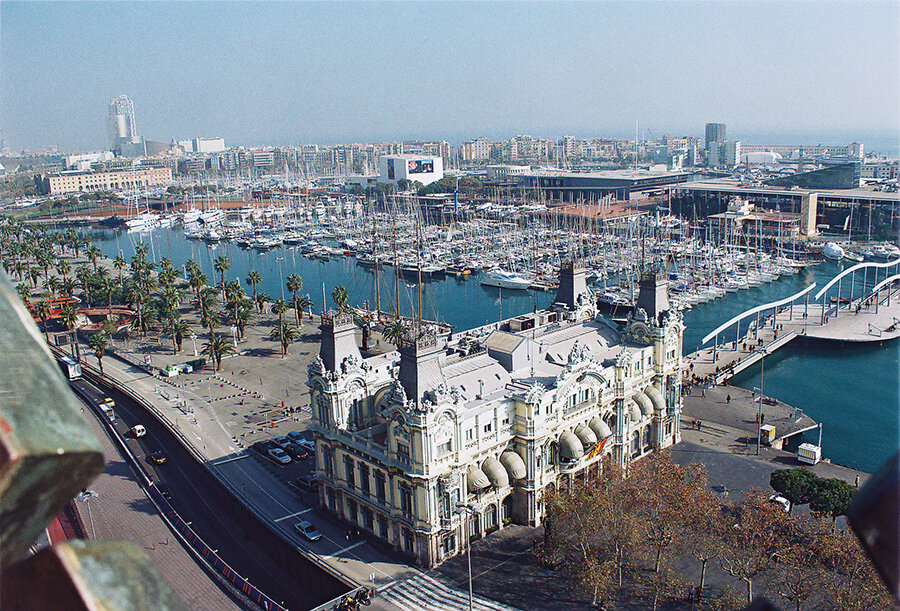Tourism & hospitality / News / Reviews / Real Estate / Spain / Real Estate Spain / Tourism Spain 22.07.2025
Barcelona to Cut Cruise Traffic and Modernize the Port by 2030

Photo: Wikimedia
The Barcelona City Council has approved a major overhaul of the city's cruise ship policy. By 2030, the number of cruise terminals in the port will be reduced from seven to five, and the daily limit for cruise passengers will drop from 37,000 to 31,000, The Sun reports.
The plan includes demolishing terminals A, B, and C. A new complex will be built on the former site of Terminal C, with the capacity to handle up to 7,000 passengers at once. The total budget for the project is €185 million. Another €50 million will go toward redeveloping the A and B terminal zones, and €90 million will fund the expansion of the Porta d’Europa bridge, which connects the pier to the city. After renovation, the bridge will support pedestrian and bicycle traffic.
Barcelona’s mayor Jaume Collboni stated that for the first time, the city is introducing strict numerical limits on cruise tourism. Previously, policies were implemented ad hoc: in 2018, cruise operations were relocated from the city center to the Adossat pier, and in 2023, the North Terminal on La Rambla was shut down. The new measures formalize and tighten these policies by setting a hard cap of 31,000 cruise passengers per day.
The Port of Barcelona and city authorities signed an agreement acknowledging the economic importance of maritime tourism while stressing the need to regulate it. The document asserts that the cruise sector must be governed by the same principles as other tourism areas such as lodging, transport, urban planning, and taxation.
The updated model not only limits traffic but introduces technical solutions for better flow control. Terminals will feature real-time data screens, and regular shuttle buses will be available to passengers. These changes are designed to ease the burden on the city’s most crowded districts.
In 2024, Spain received 12.8 million cruise passengers, with Barcelona accounting for 3.7 million — nearly one-third of the total. In recent years, local residents have increasingly voiced opposition to mass tourism, prompting authorities to mitigate its effects. Some measures already implemented include restrictions on short-term rentals. For example, the Barcelona City Council has decided to completely ban short-term tourist rentals.
The decision comes amid a steep increase in rent prices — up 68% over the past decade. More than 10,000 properties are currently rented out on a short-term basis. In 2024 alone, Barcelona welcomed a record 94 million tourists — nearly triple the prior average of 32 million. The sheer volume of visitors has further justified regulatory measures.
Property owners attempted to challenge the city's rental ban, but the Supreme Court of Spain dismissed the appeal. As a result, short-term rentals are expected to disappear — at least officially — by 2029. In spring 2025, the city announced a new increase in the tourism tax, raising it to €15 per person per night. The tax applies to both hotels and platform-based rentals.
Similar measures are being introduced across Spain. In Madrid, as of November 2024, short-term rentals are banned in buildings without separate entrances or where a majority of residents object. In Seville, the number of tourist apartments is capped at 10% of each district’s housing stock. Since January 2025, 43 districts in Málaga have implemented a three-year moratorium on new tourist apartment registrations. Alicante has imposed a two-year ban.
Spain is tightening rental rules nationwide, introducing mandatory registration and new restrictions to regulate both rental and housing markets. Authorities aim to combat illegal renting, reduce pressure on local housing, and level the playing field for all participants. These policies affect both short- and long-term rentals and include new standards for property condition, tax compliance, and neighbor consent. The measures are part of a national strategy to curb the negative effects of mass tourism.
Read also:
Chinese, Moroccans, and Russians led visa applications to Spain in 2024
Where Tourists Are Most Frequently Scammed: Troubling Stats
Tourism in the EU, Q1 2025: International Growth Amid Overall Decline
Spain Introduces Fines up to €500,000 for Illegal Rentals
Spain to Ban Sale and Rental of Properties Without Energy Certificates
Подсказки: Barcelona, tourism, cruise ships, port infrastructure, real estate, rentals, Spain, urban policy, short-term rental, tourism tax








